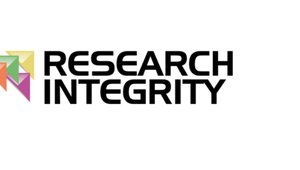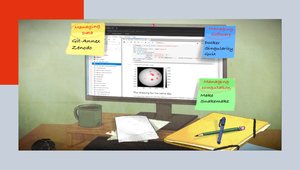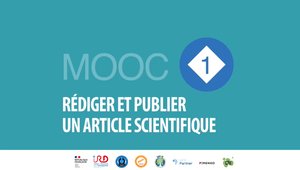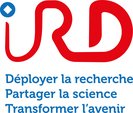PhD scholars: what tools can help you in your research?
Categories
About the course05/06/2025

Researchers are stars of exploration, because analysing phenomena based on observations is their passion. Examining, describing, modelling, predicting, identifying causes, and explaining the reasons for them is the essence of their profession... Scientific research is consubstantial with the notions of progress and innovation. That's why the profession of researcher is based on an absolute commitment to rigor, high standards and precision, where it's important to constantly challenge oneself. Subject to strong ethical values and codified rules, research requires the adoption of specific guidelines.
Entering a PhD programme, you are moving from a student’s position, where your main responsibility was to acquire and demonstrate acquisition of knowledge, into a position of producing knowledge. This creates new relationships with coworkers and your hosting institutions, new expectations, and new responsibilities towards science and society in general. Ethics & STICs: scientific integrity, research ethics & information ethics for ICTs, produced by Université Paris-Saclay deals with the questions raised by scientific research raises : how to to avoid the pitfalls of misconduct and malpractice (scientific integrity), how to control the impact of scientific research on our lives and society (research ethics), how to apply this general framework to the context of information technologies (Computer and Information Ethics), how to protect the value produced by science (intellectual property, open science), how to communicate properly at the time of internet (scientific communication, open science and internet ethics) and protect our digital selves (privacy and personal data).
Course starts on June 1rst, 2025.
If you are a teacher-researcher, researcher, doctoral student, or post-doctoral researcher, our four training courses could be useful in your professional activity. Sorbonne Université’s Open Science course, which brings together a variety of viewpoints from speakers from the research and documentation sectors, will teach you about the issues and practices of open science, a multi-faceted movement that aims to transform the production and dissemination of scientific knowledge. Open access to scientific publications and data, transparency of peer review, participatory science... find out about different approaches to open science, depending on the scientific discipline.
Registrations open until 30 June 2025.
The Research integrity in scientific professions course is designed to raise awareness of the various issues relating to scientific integrity. Provided by the Université de Bordeaux, its aim is to encourage learners to consider the behavior they need to adopt to conduct scientific research with integrity and responsibility. Initially, the course will lead learners to discover the main issues relating to scientific integrity, and then they will be alerted to the mechanisms leading to breaches of scientific integrity. Finally, the aim will be to encourage researchers or aspiring researchers to adopt a demanding and critical approach.
Registrations are open until 15 July 2025.
The Reproducible research: methodological principles for transparent science training course, produced by Inria, will give you the keys to understanding and the tools you need to acquire better practices and improve your productivity in your research work. When the course ends, you will have acquired the techniques you need to prepare replicable computational documents and to share the results of your work transparently. You will also gain an insight into the challenges and difficulties of replicable research. The course will be rounded off by numerous testimonials from researchers, particularly in the humanities and social sciences.
Registration closes on 11 December 2025.
Inria's MOOC Reproducible Research II: Practices and tools for managing computations and databy Inria, will be of interest to anyone wishing to master the management of massive data and complex computations in a scientific research context. Delivered in English, this MOOC will teach you how to organize, version and archive your data and code efficiently, using recognized tools such as Git Annex, Software Heritage or Zenodo, and how to adopt structured formats such as FITS or HDF5. You'll also discover how to deploy controlled software environments using tools like Docker or Guix, essential for guaranteeing the reproducibility of your work. Finally, it will guide you through the automation of long or distributed analyses using workflows (make, snakemake), while ensuring total control of the software environment used. Whether you're a researcher, engineer or data scientist, this MOOC will take you a step further in the rigorous management of your scientific projects. Register now to professionalize your practices!
Course starts on May 5, 2025
The Writing and publishing a scientific article course provides PhD students and young researchers with a step-by-step guide to the rules of writing and the stages involved in publishing in international journals. Supported by the Institut de Recherche pour le Développement and run by researchers and teacher-researchers from the Réseau d'Excellence des Sciences de l'Ingénieur de la Francophonie (Francophone Engineering Excellence Network), it provides the keys to meeting the requirements of scientific publishers. Publishing is essential for scientists today, whatever their discipline. On the one hand, to make their work visible and disseminate new knowledge; on the other, to guarantee the authorship of a result, obtain funding for their research, or develop their employability and progress throughout their career. This course will help you do just that.
Registrations are open until July 4, 2025.
Related posts
5 raisons de s’inscrire au MOOC « Éducation inclusive : ressources numériques adaptées pour la classe »
Categories
About the course5 raisons de s’inscrire au MOOC «Les précarités alimentaires»
Categories
About the course













